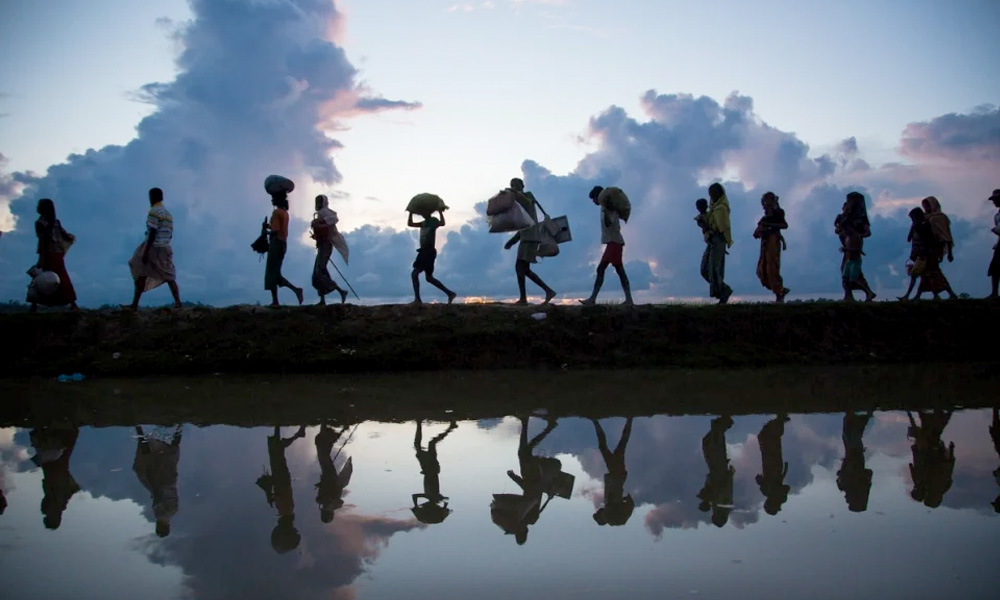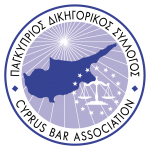To begin with, an applicant for international protection is a person who seeks to be recognized as a refugee under the terms of the 1951 Geneva Convention relating to the Status of Refugees and its 1967 Protocol, which provide the foundation for the refugee protection system in general. This is intended to provide basic information for applicants for international protection in the Republic of Cyprus.
PART 1: APPLICATION FOR INTERNATIONAL PROTECTION
Who can apply for international protection?
If you cannot or do not want to return to your country because you fear persecution because of your race, religion, nationality, membership of a particular social group, gender or political opinion.
If you cannot or do not want to return to your country because you fear you will suffer serious and unjustified harm, such as:
– Torture or inhuman or degrading treatment or punishment
– severe and systematic violations of human rights
– Serious or severe violations of your life, safety or freedom, because of
Armed conflict or massive violations of human rights
– Death penalty or execution
If you therefore believe that you qualify for refugee or subsidiary protection, you can apply for international protection and seek the protection of the Republic of Cyprus.
When do I apply?
You must apply with all accompanying family members as soon as you arrive in Cyprus. If you are already in Cyprus, you should apply as soon as possible. If you have entered Cyprus illegally, you must present yourself to the authorities without undue delay. Your illegal entry into Cyprus does not prevent you from applying for international protection.
Where do I apply?
You can formally submit your application directly to the Aliens and Immigration Unit of the Police in your country of residence.
What do I need to apply and submit my application?
– You will need to present your passport, identity card or any document proving your identity. If you cannot produce any such document because you came to Cyprus without bringing such documents with you, you can still apply for international protection.
– Unless you have reasonable grounds for not doing so, you must also produce the originals of all identity documents or birth and/or marriage certificates in your possession relating to you, your spouse and/or children.
STEP 1: How do I apply?
– You must go in person to the Aliens Office and Aliens and Immigration Unit of the Police in your area of residence and submit an application together with all your accompanying family members. (If you have not arrived alone).
– Any minor children accompanying you will be included in your application and all decisions taken in relation to the application for international protection will apply to them.
– Fill in the personal data form with all your personal details.
– You must complete the application form at the Aliens and Immigration Department of the police. You must write in detail, clearly and honestly, the reasons why you are afraid to return to your country.
– If you are unable to read and/or write, a police officer or interpreter will complete the application form for you, with your verbal statements, and ask you to sign it. You should ask the police officer or interpreter to read what was written on your application before you sign it to make sure that what you said is written correctly.
– If you are a vulnerable person or have any other special needs you must tell the police officer immediately.
– You must provide your address. It is very important that you give your address correctly. Your file may be closed and the examination of your application may be interrupted if the authorities cannot find you at the address you have given. If you change your address at any time, you must inform the local police immigration and immigration unit within five days or as soon as possible, otherwise your file may be closed and you will therefore no longer be considered an applicant for international protection. You should inform the police officer in case you are homeless so that the necessary measures can be taken regarding your accommodation.
STEP 2: Dublin procedure
When you submit your application, your fingerprints and the fingerprints of all family members included in your application. You will be given a Dublin leaflet explaining why your fingerprints are being taken. Children under 14 years of age are not required to give fingerprints.
Fingerprints are transmitted to the European fingerprint database “Eurodac” to check whether the applicant has previously applied for asylum in any other EU Member State or has previously been fingerprinted at an EU border. Fingerprint data are stored by Eurodac for 10 years. Your application cannot be processed by Cyprus. The “Dublin Regulation” (No 604/2013) is a European Union law that determines which “Dublin” country will examine your application for international protection.
You can be transferred to another Dublin country if:
(a) you have applied for asylum in another Dublin country or travelled legally or irregularly through another Dublin country.
b) if you have a family member who is in another Dublin country; or
(c) if you had a visa or residence permit issued by another Dublin country.
The decision to transfer is subject to an administrative appeal. If you wish to be reunited with your family, you must provide evidence as soon as possible and at the latest within three months from the date of the application for international protection.
STEP 3: Confirmation letter
Once you have completed all the above steps, the police will give you a confirmation letter, which will prove that you have applied for international protection and that you are legally residing in Cyprus. You must have the Confirmation Letter with you at all times. If the process is not completed on the same day, the Police Officer will arrange an appointment for you.
IT IS EXTREMELY IMPORTANT that you RETURN TO THE POLICE AND IMMIGRATION OFFICERS on the date specified at in order to make all the necessary arrangements for your application for international protection.
You can use the confirmation letter to:
– Remain legally in the areas controlled by the government of
– Move freely in the areas controlled by the government
– Use the government-controlled government of the Republic
– Apply for employment at the Labour Office
– Apply for preferential benefits if you cannot find work, or cannot work
– Apply for a medical card in order to access public health services
***** NOTE: YOU ARE ENTITLED TO THESE RIGHTS WHILE YOUR APPLICATION IS BEING EXAMINED
STEP 4: Medical examination
Once you have received your Confirmation Letter, you must undergo a medical examination at any regional or general hospital. The medical examination is FREE. The results of the medical examination are confidential.
STEP 5: Foreigner’s Registration Certificate
After you have received your confirmation letter and undergone a medical examination, you must present to the Immigration Office of your district to obtain an Alien Registration Certificate. The Alien Registration Certificate is an identity document issued to all foreigners, including applicants for international protection, in Cyprus. The Alien Registration Certificate is NOT proof of legal residence in Cyprus. All family members included in your application for international protection must obtain their own certificate apply for three passport size photographs. Foreigner Registration Certificate. Issue of an Alien Registration Certificate. The Alien Registration Certificate/Certificate is issued through the Immigration Office in your district and is FREE of charge.
PART 2: Decision
What happens if my application is accepted?
If your application is accepted, you will receive a letter stating the status you will be granted.
In this letter you will either be granted the scheme or you will be granted the scheme:
– refugee status; or
– subsidiary protection status
What happens if my application is rejected?
– If your application is rejected, you will receive a letter explaining the reasons for the rejection and you have the right to appeal against this rejection within the time limit indicated in the rejection letter.
PART 3 : Appeal procedures
When can I appeal?
– You have the right to appeal if your application for international protection has been rejected.
– If you have been granted subsidiary protection, you can appeal against the decision rejecting your application for refugee status.
– The rejection letter states how many days you have to submit your appeal, starting from the day you received the rejection letter. You must submit your appeal within this period. Otherwise, your appeal will not be accepted.
– The International Protection Board has exclusive jurisdiction to decide at first instance on any appeal by asylum seekers brought under Article 146 of the Constitution issued under the Refugee Act or against a failure to act under the Refugee Act.
PART 4: Obligations of applicants
What are my obligations?
– You must respect and follow the laws and regulations of the Republic of Cyprus.
– You must not leave Cyprus without the permission of the Director of Registry and Immigration of the Immigration Department. If you leave Cyprus without permission, you may not be allowed to return and the procedures regarding the processing of your application will be stopped. Therefore, your file will be closed.
– If you change your address, you must inform the local Aliens and Immigration Department of the Police within five days or as soon as possible, otherwise the procedure for the examination of your application will be discontinued and your file will be closed.
You will therefore be subject to arrest and/or deportation.
– You must reply to the letters sent to you by the Asylum Service. Otherwise, the procedure for examining your application will be interrupted and your file will be closed. You will therefore be subject to arrest and/or deportation.


